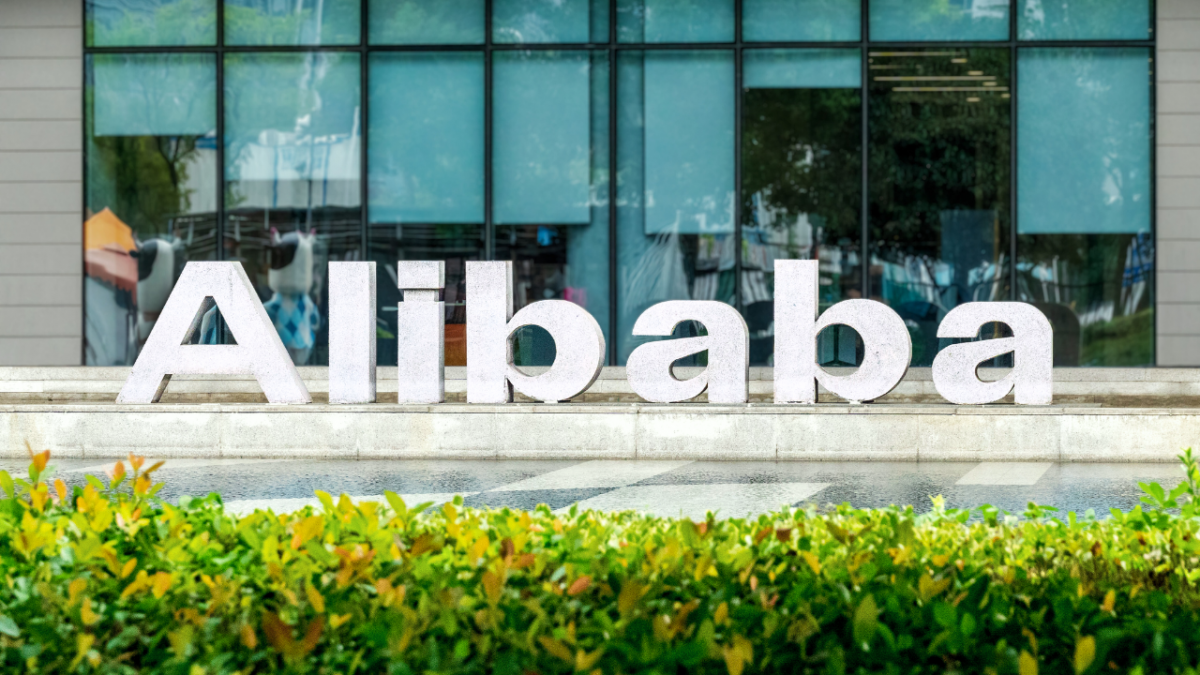
Photo credit: Getty Images
Alibaba Group reaped the early rewards from multi-pronged investments in its core businesses, the Hangzhou-based holding company reported in its June quarter earnings.
Over the three months ended June 30, 2024, Alibaba’s quarterly revenue rose 4% year-over-year to RMB243.24 billion ($33.47 billion).
Alibaba’s Chinese commerce platforms, Taobao and Tmall, saw a rise in return customers and purchasing frequency as a result of investments made towards enhancing user experience. The uptick in activity led to strong gross merchandise value (GMV) growth and stabilizing market share.
Alibaba Cloud’s revenue increased by 6% year-over-year to RMB26.55 billion. Its transition towards high-quality revenue streams and public cloud drove segment revenue excluding Alibaba-consolidated subsidiaries to accelerate by 6% year-over-year as well.
Revenue from Alibaba’s international commerce business also rose 32% year-over-year driven by its cross-border businesses, and losses narrowed significantly for Alibaba’s local services segment on a yearly basis.
“In this quarter, we continue to execute our plan to invest for growth in our core businesses, while reducing losses in other business units through improvement in operating efficiency,” said Alibaba Group CFO Toby Xu.
The increased pace of investment contributed to a 56% year-over-year decrease in free cash flow, which fell to RMB17.37 billion, while Alibaba’s adjusted earnings before interest, taxes, and amortization (EBITA) for the quarter decreased 1% year-over-year to RMB45.04 billion.
“We maintained the integrity of our margins and delivered consistent adjusted EBITA. We also returned significant value to shareholders at a pace higher than past quarters,” said Xu.
Alibaba repurchased 613 million ordinary shares at a cost of $5.8 billion during the first quarter, including approximately $1.2 billion worth of American Depository Shares through privately negotiated transactions concurrently with the issuance of convertible notes.
During the 2024 fiscal year, the company repurchased $12.5 billion worth of its shares as it “delivered value to shareholders by returning cash and creating earnings accretion,” Alibaba Chairman Joe Tsai and CEO Eddie Wu noted in a letter to shareholders.
By the end of the June quarter, Alibaba had 19,024 million ordinary shares outstanding—a 2.3% net reduction in outstanding shares after accounting for shares issued under the group’s employee stock ownership plan compared to March 31, 2024.
Return to Growth Trajectory
Alibaba’s largest revenue generator by segment remained Taobao and Tmall Group (TTG), which reported high-single-digit online GMV growth and double-digit order growth in the June quarter as consumers made more purchases on its platforms.
TTG’s revenue declined 1% year-over-year, mainly due to a previously planned reduction of direct sales businesses, with a focus on third-party platform businesses.
Customer management revenue (CMR) grew 1% year-over-year on the back of rising GMV, partly offset by a decline in take rate. CMR is expected to improve as the platforms launch monetization products in the second half of the 2025 fiscal year.
“Our focus on enhancing user experience by offering quality products at attractive prices with great service led to stabilizing market share of Taobao and Tmall Group as we returned the business on the growth trajectory,” said Wu.
Our results this quarter demonstrated our strategy at work
As part of this user-first approach, TTG debuted a simplified sales structure for 6.18, China’s largest retail campaign after 11.11.
For the first time, the platforms eschewed a pre-sales period and instead divided the promotions into two waves. Merchants and consumers alike benefited from a range of AI-powered tools to run price comparisons, field product questions and more.
TTG also introduced initiatives to enhance the 88VIP loyalty program, and membership grew by double-digits year-over-year to top 42 million.
The purchasing power of 88VIP members was on full display in the June quarter, as they accounted for over 60% of Tmall Luxury Pavilion’s GMV during 6.18 alongside brand-operated loyalty program members.
Accelerating Growth in AI and Public Cloud
Alibaba Cloud Intelligence Group’s revenue jumped in the June quarter on the back of strong adoption of its public cloud and AI products among third-party customers.
Revenue excluding Alibaba-consolidated businesses was back to positive and increased by 6% year-over-year, on track to reach double-digit growth in the second half of the 2025 fiscal year.
“The cloud business achieved positive revenue growth momentum, driven by public cloud and AI-related product adoption as we continue to invest to maintain our market leadership,” said Wu.
Alibaba Cloud also reported double-digit growth of its public cloud products year-over-year, as it pivoted to focus on high-quality revenue streams.
AI-related product revenue grew by triple-digits year-over-year in the three months ended June 30, 2024, and the number of paying users on Alibaba Cloud's AI platform increased by over 200% quarter-over-quarter.
“We’re the only company [in China] that both runs a leading cloud business and is competitive in AI,” Joe Tsai noted during J.P. Morgan’s annual Global China Summit in May.
The dual-focused strategy, paired with increased operational efficiency, led the segment’s adjusted EBITA, a non-GAAP measurement, to rise 155% year-over-year.
Over the quarter, Alibaba Cloud released an updated large language model series Qwen 2.0 and unveiled the English-language version of its open-source AI model community ModelScope.
At the Olympic Games Paris 2024, Alibaba Cloud technology overtook satellites as the primary means of broadcast for the first time. Two-thirds of national broadcasters used live signals transmitted by Alibaba Cloud in real-time, reaching billions of viewers worldwide.
These were also the first Games to see extensive deployment of Alibaba Cloud’s AI technology, which was used to create 360-degree replays in real-time and restore archival content.
Global Expansion
Alibaba International Digital Commerce Group (AIDC) recorded a 32% year-over-year rise in revenue driven by its cross-border business.
AliExpress’ premium service Choice continued to deliver rapid order growth and saw a notable improvement in its unit economics on a sequential basis, while Lazada reported a significant fall in operating losses during the June quarter.
AIDC also widened the international reach of its businesses: Trendyol extended its services into the Gulf region, and AliExpress stepped up its investments in a range of markets.
AliExpress became the first exclusive e-commerce partner of Europe’s UEFA EURO 2024 football tournament and announced David Beckham as an ambassador. It also doubled down on anti-counterfeiting efforts in South Korea.
The platform inked a strategic partnership with Magalu, one of Brazil’s largest retail companies. As part of the partnership, products from AliExpress’ Choice will be available for purchase on Magalu digital channels in Brazil.
Synergies between Alibaba’s logistics platform Cainiao and AIDC also reached new heights and drove quarterly revenue from Cainiao up 16% year-over-year to RMB26.81 billion.
Likewise, cross-border value-added services propelled revenue growth in AIDC’s wholesale business, which recorded RMB5.60 billion in revenue for the quarter ended June 30, 2024—a 12% increase year-over-year.
On the wholesale front, B2B platform Alibaba.com also saw steady adoption of its AI functions over the quarter, including among some 30,000 micro, small and medium-sized enterprises.







